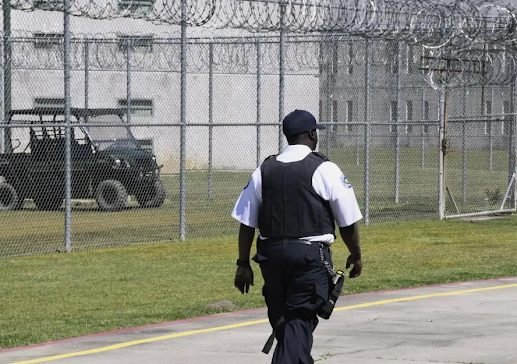Allowing state prisons to confiscate cellphones within their facilities is a necessary measure
Once again, state prosecutors from different states are advocating for Congress to enact legislation that would authorize state prisons to block cellphone signals utilized by inmates. These prosecutors argue that these devices enable prisoners to strategize acts of violence and carry out criminal activities.
A letter, signed by 22 Republican prosecutors led by South Carolina Attorney General Alan Wilson, was dispatched to House Speaker Kevin McCarthy and Senate Majority Leader Chuck Schumer. The prosecutors emphasized the necessity for Congress to pass legislation that would grant states the power to establish a cell phone jamming system. The primary aim of this system is to safeguard inmates, guards, and the general public.
It has been stated by Wilson's office that they will be reaching out to Democratic state prosecutors, emphasizing that the issue is not a partisan one.
The attorneys have shared a letter with The Associated Press, wherein they mention a handful of criminal incidents. According to the attorneys, these incidents were orchestrated by inmates using illicit cellphones. Notably, they include a drug conspiracy in Tennessee and a double homicide that was allegedly ordered by an inmate from Indiana.
Furthermore, they highlighted a 2018 gang-related siege that unfolded at a prison in South Carolina, lasting for over seven hours and resulting in the tragic deaths of seven inmates. One inmate provided a haunting description of bodies piled on top of each other, resembling a macabre woodpile. Corrections officials attributed the orchestrated violence, which stands as the most severe prison
The prosecutors emphasized the significance of restricting inmates from using contraband cell phones, as it would effectively curb the occurrence of severe drug trafficking, deadly riots, and other criminal offenses.
Prosecutors are urging for a modification in a federal communications law that has been in effect for nearly a century, as it currently prevents state prisons from using jamming technology to neutralize illicit cell signals. This change is crucial in order to render the phones worthless, which are frequently smuggled into prisons through methods like concealing them inside hollowed-out footballs, involvement of corrupt employees, and occasionally even dropping them using drones.
The continuous effort to clamp down on illegal cellphones within state prisons has been ongoing for years. South Carolina Corrections Director Bryan Stirling has emerged as a prominent advocate among corrections directors nationwide, calling for the utilization of advanced technology to effectively crack down on the presence of contraband phones.
In 2021, a significant triumph was secured as the Federal Communications Commission embraced a regulation that would permit state prison systems to seek permits for the purpose of identifying and disabling illegal cell signals, one by one, in collaboration with cellphone providers. South Carolina took the lead by applying for this technology, but Stirling informed AP on Tuesday that no progress has been made regarding the state's application.
Stirling emphasized that federal prisons have the authorization to disrupt cell signals behind bars, but they have made the decision not to exercise this privilege currently.
Expressing its opposition to jamming signal technology, CTIA, a wireless industry group, emphasizes the potential disruption it may cause to legitimate phone calls. Nevertheless, as stated in a 2020 FCC document, CTIA has informed the commission that it has been successfully working alongside its member companies to cease service to contraband devices in accordance with court orders they have obtained.
Calling combating contraband phones “a serious issue,” CTIA officials said in a statement to the AP that the “wireless industry remains committed to working with corrections officials and policymakers at all levels of government to implement effective solutions that combat contraband phones while protecting lawful communications.”
The FCC officials have not provided an immediate response to an email inquiry regarding the renewed push for jamming.
Historically, Congress has contemplated the idea of implementing jamming legislation, however, no bills have been officially enacted or even given the chance for a hearing. U.S. Senator Tom Cotton, representing Arkansas as a Republican, reintroduced a similar proposal in August during the previous Congress.
“We’re not going to stop advocating,” Wilson told AP on Tuesday. “I can only hope that at some point, Congress is going to take note.”



Comments
Post a Comment